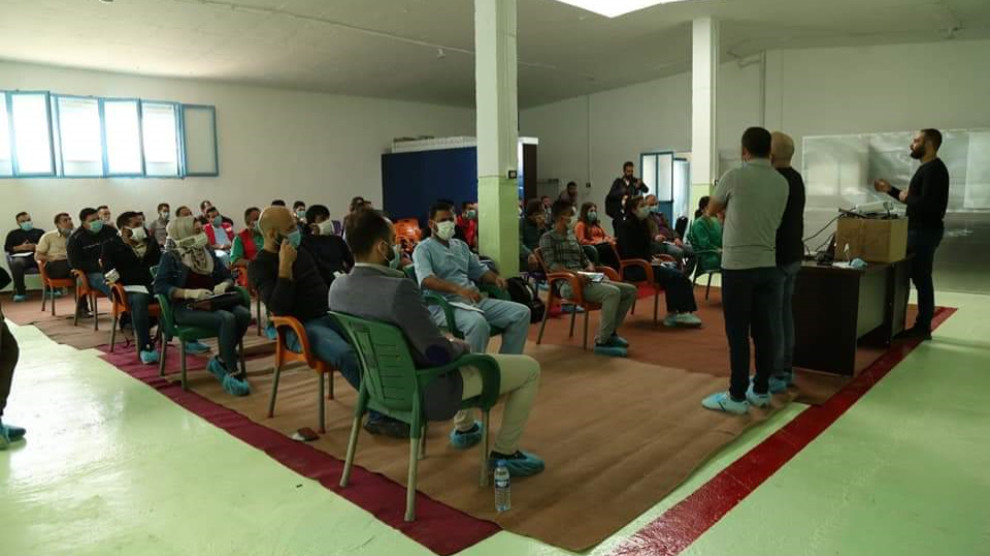The Autonomous Administration has just announced the extension of the anti-Corona quarantine measures for another ten days. This is a shorter period than before, and the curfew has also been amended to allow money exchanges to operate for two days a week. This was a common demand from the people here. Many families rely on money sent from relatives in Europe, but without the exchange shops they were unable to receive these payments.
So far the quarantine measures seem to have been successful, with general compliance and no known outbreaks in the region. This has given the Administration time to prepare, opening a number of specialised medical centers. Yesterday a new 120 bed hospital was opened in Hassakah with the help of the Kurdish Red Crescent. More Corona treatment centres will be opened as ventilators and Intensive Care equipment become available. With the opening of the border to South Kurdistan for goods (but not yet people), that equipment should now be easier to find. The Kurdish Red Crescent also continue to expand their emergency response capacity with new ambulance centres and upgraded existing medical centers.

In Regime-held areas, the quarantine has been less successful, with residents reporting to ANHA last week that many shops and cafes remain open, and Regime militias move freely without healthcare checks. Radwan Mohamed, who lives in Hassakah, told ANHA news ” The Syrian Government has negligence in imposing the necessary measures of people inside its areas. When we go to the regions of the Syrian Government, we find the stores open, and this is a negative thing. ”
There are fears that an outbreak in Regime neighbourhoods of Hassakah or Qamişlo would be poorly contained and could spread into the rest of the city. These fears are strengthened by continued civilian flights from Damascus into Qamişlo airport, without health checks, and by recent revelations that a Syrian man with Coronavirus was transferred to a Regime hospital in Qamişlo, where he later died. There is suspicion that this is not just negligence, but deliberate attempts to undermine the Autonomous Administration’s precautions – to use Corona to weaken the region and force concessions in future negotiations. The withholding of World Health Organisation aid and refusal to test samples from the Autonomous Administration are seen in the same way.
It is hugely important for the Assad Regime to face up to their responsibilities. Abdel Latif Saadi, from al-Salihiyya in Hassakah, says “We hope there will be coordination between the Autonomous Administration and the Syrian Government because this disease does not have mercy on anyone.” Allowing the Coronavirus to spread, through incompetence or malice, could do untold harm to the region. Assad bears a significant portion of the blame for the damage that has already befallen Syria. If the country is to heal from the war, the Regime must learn from the successes of the Autonomous Administration. Only then will we start to see true stability.